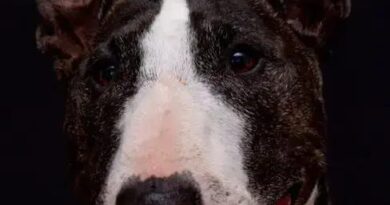What is: Aggressive chewing in dogs
What is Aggressive Chewing in Dogs?
Aggressive chewing in dogs refers to a behavior where a dog chews on objects with excessive force and intensity. This behavior can manifest in various forms, including chewing on toys, furniture, or even household items. Understanding the underlying causes of aggressive chewing is crucial for pet owners to address this behavior effectively.
Common Causes of Aggressive Chewing
There are several reasons why a dog may engage in aggressive chewing. One of the primary causes is boredom. Dogs that lack sufficient mental and physical stimulation may resort to chewing as a way to entertain themselves. Additionally, anxiety and stress can trigger aggressive chewing, as dogs may chew to relieve their tension. Identifying the root cause is essential for developing a suitable strategy to manage this behavior.
Signs of Aggressive Chewing
Recognizing the signs of aggressive chewing is vital for dog owners. Dogs may exhibit destructive behavior, such as tearing apart toys or damaging furniture. They may also show signs of frustration or anxiety when they are unable to chew on something. Observing your dog’s chewing habits can help you determine if the behavior is aggressive or simply a normal part of their play.
How to Differentiate Between Normal and Aggressive Chewing
It’s important to differentiate between normal chewing and aggressive chewing. Normal chewing often involves a dog gnawing on toys or bones without causing significant damage. In contrast, aggressive chewing is characterized by the destruction of items and a more intense chewing action. If your dog is consistently damaging objects or showing signs of distress while chewing, it may indicate a problem that needs to be addressed.
Impact of Aggressive Chewing on Dogs
Aggressive chewing can have several negative impacts on dogs. Physically, it can lead to dental issues, such as broken teeth or gum disease. Behaviorally, it can create a cycle of anxiety and stress, as dogs may feel compelled to chew more when they are anxious. This behavior can also strain the relationship between the dog and its owner, especially if the owner becomes frustrated with the destruction of property.
Managing Aggressive Chewing
Managing aggressive chewing requires a multifaceted approach. Providing appropriate chew toys can redirect your dog’s chewing behavior. Additionally, increasing exercise and mental stimulation can help alleviate boredom and anxiety. Training techniques, such as positive reinforcement, can also be effective in teaching your dog what is acceptable to chew on.
Choosing the Right Chew Toys
Selecting the right chew toys is essential for managing aggressive chewing. Look for durable toys designed for heavy chewers, as these can withstand intense chewing without breaking apart. Natural chews, such as bully sticks or raw bones, can also be beneficial, but always supervise your dog to prevent choking hazards. Experimenting with different types of toys can help you find what your dog enjoys the most.
When to Seek Professional Help
If aggressive chewing persists despite your efforts to manage it, it may be time to seek professional help. A veterinarian or a certified dog trainer can provide insights into your dog’s behavior and recommend tailored strategies. In some cases, underlying medical issues or behavioral disorders may need to be addressed to resolve the problem effectively.
Preventing Aggressive Chewing
Preventing aggressive chewing starts with understanding your dog’s needs. Regular exercise, mental stimulation, and socialization can significantly reduce the likelihood of aggressive chewing behavior. Establishing a routine that includes playtime and training can keep your dog engaged and less likely to resort to destructive chewing.
The Importance of Consistency in Training
Consistency is key when addressing aggressive chewing in dogs. Ensure that all family members are on the same page regarding rules and training methods. Reinforcing positive behavior and redirecting negative behavior consistently will help your dog learn what is acceptable. Over time, with patience and persistence, you can help your dog overcome aggressive chewing tendencies.




